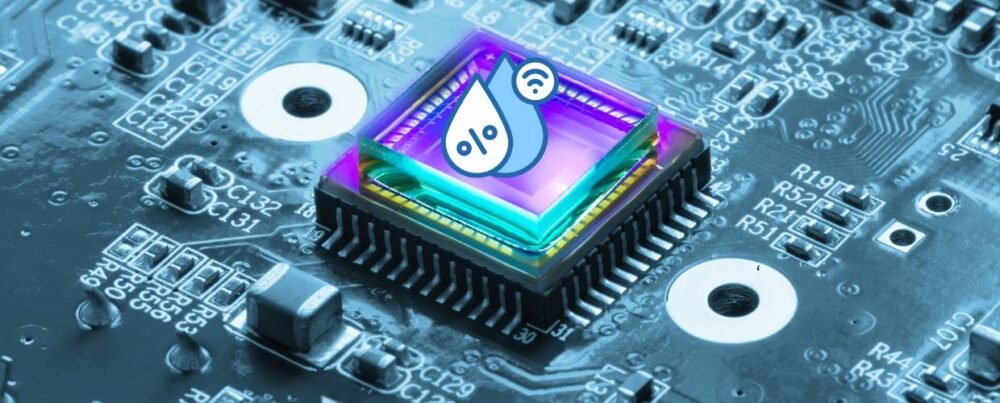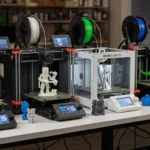Nanoscale sensors represent a groundbreaking frontier in sensor technology, where miniaturization meets precision to transform how we detect and measure the world around us. These tiny sensors, typically operating at the nanometer scale, profoundly impact various industries, from healthcare and electronics to environmental monitoring and beyond. In this comprehensive exploration, we embark on a journey into the realm of nanoscale sensors, uncovering their significance, diverse applications, and revolutionary potential for the future.
The Significance of Nanoscale Sensors
Nanoscale sensors are not mere miniaturized versions of conventional sensors; they redefine the boundaries of detection and measurement.
Precision Detection at the Nanoscale
The hallmark of nanoscale sensors is their ability to detect and measure with exceptional precision at the nanometer level. This unprecedented level of sensitivity allows for detecting minute changes, particles, and substances previously beyond traditional sensors’ reach.
Miniaturization and Integration
They are remarkable not only for their precision but also for their miniature size. They can seamlessly integrate into various devices and systems, revolutionizing electronics, healthcare, and environmental monitoring industries.
Techniques in Nanoscale Sensor Fabrication
The development of nanoscale sensors relies on a diverse array of cutting-edge fabrication techniques.
Nanomaterials and Quantum Effects
It often leverages the unique properties of nanomaterials and quantum effects. Materials like carbon nanotubes and quantum dots exhibit extraordinary electrical, optical, and mechanical characteristics that make them ideal for sensing applications.
MEMS and NEMS Technologies
Microelectromechanical systems (MEMS) and nanoelectromechanical systems (NEMS) technologies are pivotal in nanoscale sensor development. These systems integrate tiny mechanical and electrical components on a single chip, enabling highly sensitive and versatile sensors.
Molecular and Biological Sensors
Molecular and biological sensors are a subset of nanoscale sensors that focus on detecting specific molecules, DNA sequences, or biological markers. These sensors are revolutionizing healthcare by providing rapid and accurate diagnostic capabilities.
Applications of Nanoscale Sensors
Nanoscale sensors find applications across various industries, enabling breakthroughs in diverse fields.
Healthcare and Medical Diagnostics
In healthcare, nanoscale sensors offer rapid and precise diagnostic tools. They can detect biomarkers, pathogens, and cellular changes with unparalleled sensitivity, revolutionizing disease detection and patient care.
Electronics and Semiconductor Industry
They are integral to the semiconductor industry, facilitating the development of smaller, more efficient electronic devices. They enable advanced touchscreens, accelerometers, gyroscopes in smartphones, and environmental sensors for IoT applications.
Environmental Monitoring
Nanoscale sensors greatly benefit environmental monitoring. They provide real-time data on air quality, water pollution, and soil conditions, which is crucial for addressing environmental challenges and ensuring a sustainable future.
Nanoscale Imaging
It also contributes to imaging technologies. Scanning probe microscopes with nanoscale sensors can capture high-resolution images of surfaces, atoms, and molecules, advancing materials science and nanotechnology research.
Challenges and Ethical Considerations
Developing and deploying nanoscale sensors bring challenges and ethical considerations that warrant careful consideration.
Privacy and Data Security
As nanoscale sensors collect vast amounts of data, privacy and data security concerns become paramount. Safeguarding sensitive information and ensuring responsible data use are paramount ethical considerations. Striking a balance between the benefits of data-driven insights and protecting individuals’ privacy rights is an ongoing challenge.
Environmental Impact
The manufacturing and disposal of nanoscale sensors may have environmental consequences. To mitigate these impacts, sustainable fabrication processes and recycling methods must be developed. Nanoscale sensor developers and manufacturers must adopt eco-friendly practices to minimize their ecological footprint.
Ethical Use of Biometric Sensors
Biometric nanoscale sensors, often employed in security and surveillance applications, raise ethical questions regarding individual privacy and consent. Balancing the need for security to protect personal rights is a complex and evolving ethical challenge. It necessitates the development of clear ethical guidelines and robust regulatory frameworks.
The Future of Nanoscale Sensors
Nanoscale sensors hold immense potential for shaping the future of technology, research, and industry, opening doors to unprecedented advancements.
Biomedical Breakthroughs
In healthcare, nanoscale sensors are poised to lead to biomedical breakthroughs. They will facilitate early disease detection, targeted drug delivery, and personalized treatment plans. These sensors will play a pivotal role in the emerging field of precision medicine, where treatments are tailored to individual patients based on their unique genetic and molecular profiles.
Environmental Sustainability
It will continue to contribute to environmental sustainability. It will enable real-time monitoring of pollution levels, climate conditions, and resource management. This data-driven approach is essential for informed decision-making and transitioning to a more sustainable world. It empowers us to address pressing environmental challenges with greater precision and efficacy.
Enhanced Electronics
In the electronics industry, nanoscale sensors will drive the development of smaller, more powerful, and energy-efficient devices. These sensors will be at the heart of smartphones, wearables, and IoT technology innovations. It will continue to push the boundaries of what is possible in the world of electronics, enabling the creation of smarter and more responsive devices.
Conclusion
Nanoscale sensors are not just sensors; they are precision instruments that redefine our ability to detect and measure the world at the smallest scales. Their significance extends beyond their sensitivity; they are enablers of innovation, driving progress in healthcare, electronics, environmental monitoring, and scientific research. As nanoscale sensors evolve, ethical considerations, privacy, and sustainability must guide their development and application.
The future of this field is a world where the invisible becomes visible, where the tiniest changes can be detected and measured with unprecedented precision. They are the architects of a future where knowledge is not just power but also precision, opening new horizons of discovery and improvement.





